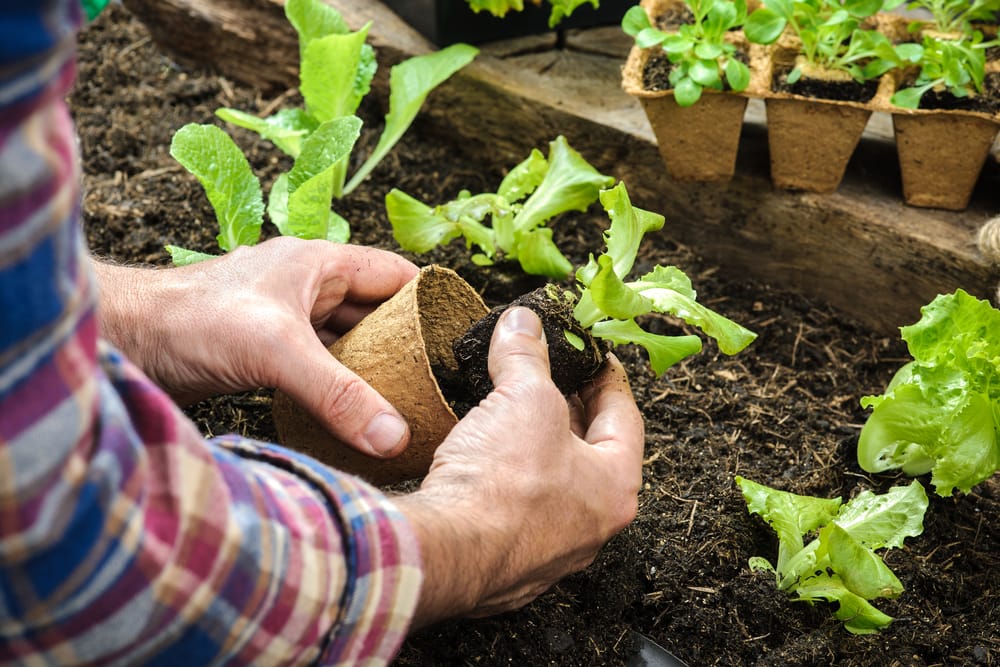Addiction Treatment
Gardening Therapy for Addiction Recovery

Written By:

Table of Contents
A critical element of long-term addiction recovery is learning and discovering new activities that will be fulfilling and enjoyable, and that will be a healthy alternative to drug or alcohol abuse. Counselors discovered that gardening therapy is an ideal activity for this purpose. Recovering alcoholics and drug addicts will often feel a sense of boredom or purposelessness when they are setting out on a path to long-term recovery. The liquor or drugs that controlled their lives might have numbed them to other options for enjoyment and fulfillment. This is where new hobbies and activities come into play.
Gardening Therapy for Addiction Recovery
Gardening connects a recovering addict with nature and the world around him. Some addicts will equate nature with the “higher power” that traditional 12-step programs encourage them to seek. Outdoor gardens can instill a sense of peace that addiction will have removed from an addict’s life. That sense of peace will grow into a greater sense of purpose as a recovering addict learns to care for plants that he has cultivated.
Gardening can also help a recovering addict to recover a lost sense of self-esteem. The a person can itemize the actions necessary to cultivate a garden into a set of goals that the addict can work toward. As each goal is achieved, a recovering addict will gain a greater sense of empowerment and ability to control simple tasks, that eventually evolves into an ability to complete greater and more complicated tasks. The cumulative effect of meeting multiple goals will give a recovering addict powerful positive feedback that will help him to stay on a path to recovery.
Change Your Focus, Change Your Life
Gardening will also give a recovering addict a concrete set of tasks to increase his focus. Drugs or alcohol will inevitably have been the primary or sole focus of the addict’s life before he started rehab. Even after completing a month-long or longer detox and rehab program, many addicts report that they continue to obsess about drugs or alcohol. The simple and achievable tasks that are necessary to cultivate a garden provide an alternate focus that distracts a recovering addict from that obsession. Over time, those distractions become more of a primary interest that overshadow and eliminate obsessions over drugs and alcohol.
Gardening and Cravings
Gardening can help distract people with addictions in many ways. During recovery, it’ll be common for a person to experience cravings. Instead of dwelling on these feelings, a person can garden to distract them from the cravings. Additionally, gardening can spark interest in other activities. Many people who garden also enjoy cooking. Harvesting your own produce makes cooking cheaper and healthier. It also inspires creativity and innovation to try new recipes (as many gardeners have an abundance of produce)!Gardening therapy can also inspire interacting with new social circles. When a gardener has too much produce to enjoy alone, they can gift or sell their produce. Some communities even have community farmer’s markets or crop shares where gardeners can socialize and share their crops. These fellow gardeners can also become friends and support networks that help those in recovery stay on track.
Practicing Gardening Therapy
Gardening therapy is increasingly available in urban, suburban, and rural settings. Many urban areas are establishing community gardens in neighborhoods that do not offer larger plots of land. Recovering addicts might receive an opportunity to develop community garden plots either by themselves or as part of a greater group support and recovery project. Recovering addicts who fear that they will be the target of judgments from friends and family will find that gardening is fully judgment-free. They will also see obvious parallels between the progress in their gardens and their own recoveries. Plants that are cultivated from seeds are small and fragile at first, but with appropriate care they gain strength over time before becoming productive and nurturing plants. Addicts who often have no intention of continuing their gardening when they start their recovery often find themselves drawn back to gardening year after year, as their gardens reflect more and more of their personal recovery stories.
Long-Lasting Addiction Treatment
While they’re important, hobbies aren’t the only thing a man needs for addiction recovery. The Last Resort Recovery Center near Austin, Texas, can provide addiction treatment programs to men from all backgrounds and circumstances.
For more information and ideas on how gardening can help your recovery from drug or alcohol addiction, please call us for a confidential consultation. Don’t let addiction consume your life. Start your own recovery garden with us today.
